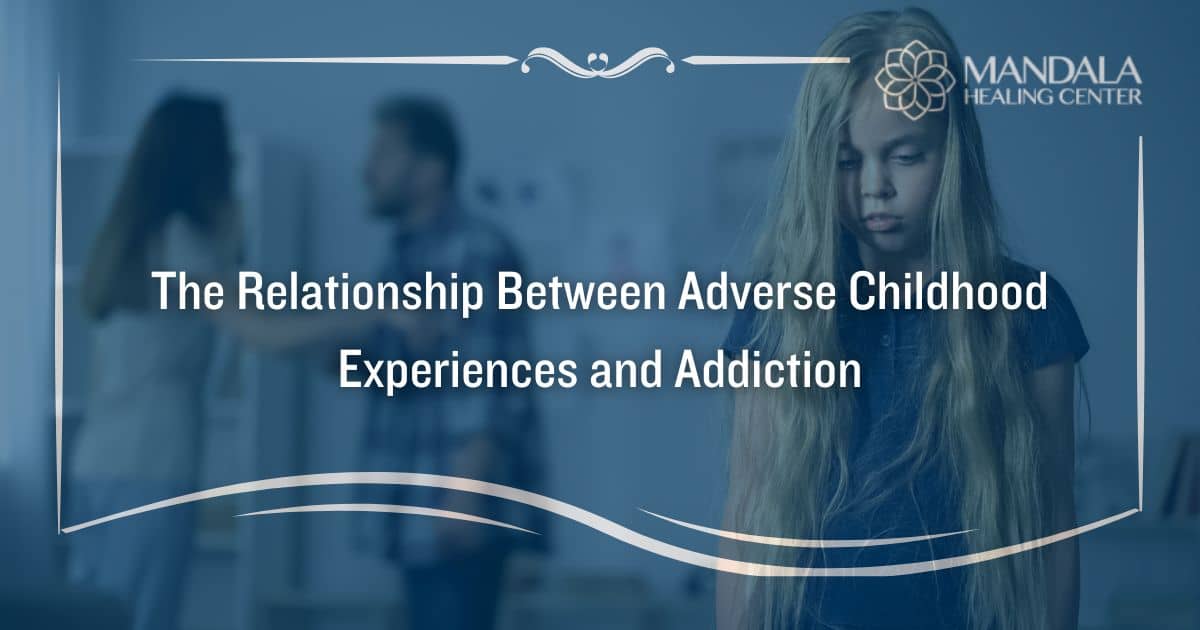Many people have experienced traumatic events as a child. According to the CDC, 64% of U.S. adults report experiencing one adverse childhood experience while 1 in 6 people experienced four or more traumatic events.[1]
While childhood trauma is common, it is extremely detrimental to development. When adverse childhood experiences are left untreated, they can result in emotional, psychological, behavioral, and social issues that affect you into your adulthood.
One of the ways untreated childhood trauma can manifest is addiction. If you never learn how to deal with your negative memories and emotions effectively, you could begin abusing substances to numb your pain.
What are Adverse Childhood Experiences (ACEs)?
Adverse childhood experiences (ACEs) are another term for childhood trauma. These experiences are stressful or traumatic, causing lasting psychological damage to the person dealing with them. If you experience an ACE, your sense of safety, stability, and ability to bond may be impacted at a young age.
Examples of adverse childhood experiences include:
- Physical, emotional, or sexual abuse
- Physical or emotional neglect
- Witnessing or being a victim of domestic violence
- Being in a home where substance abuse is present
- Having parents going through a nasty divorce or separation
- Living in a home with someone who has an unmanaged mental illness
- Having a member of your household go to prison
- Experiencing food insecurity
Experiencing traumatic events as a child can cause you to develop a variety of unhealthy coping mechanisms or struggle with your own hardships later on in your adulthood. Additionally, dealing with an ACE as a child can increase your risk of experiencing health issues later in life. In fact, studies have found adults with ACEs are at greater risk for diseases such as alcoholism, heart attack, stroke, depression, diabetes, and coronary heart disease.[2]
Symptoms of Trauma in Children
The best way to prevent adverse childhood experiences from leading to negative coping mechanisms like addiction is to identify and address the trauma when it occurs. However, it can be difficult to tell when a child has experienced trauma without being aware of the symptoms.
If you notice the following symptoms in a child, it is important to encourage them to attend trauma therapy:[3]
- Fearing separation from parents or caregivers
- Crying or screaming frequently
- Eating poorly and losing weight
- Having nightmares
- Becoming anxious or fearful
- Feelings of guilt and shame
- Difficulty concentrating or sleeping
- Feeling depressed or alone
- Developing eating disorders or self-harming behaviors
- Beginning to abuse alcohol or drugs
- Becoming sexually active
How is Childhood Trauma Linked to Addiction?
When you deal with adverse or traumatic experiences as a child, you may experience a variety of physical, psychological, and behavioral consequences well into your adulthood. Many people who experienced childhood trauma deal with depression, post-traumatic stress disorder, and even physical health conditions like diabetes or migraines. However, childhood trauma is also linked to the development of addiction.
When you deal with trauma as a child, you do not have any healthy coping mechanisms to properly process the things you experienced. Over time, you will develop unhealthy manners of coping to soothe the lasting psychological damage that the trauma has caused you. Oftentimes, this manifests as self-medicating with alcohol and drugs.
There are many reasons adverse childhood experiences can lead to addiction, such as:[4]
- Early initiation of alcohol use
- Problem drinking behavior into adulthood
- Increased likelihood of early smoking
- Continued heavy smoking into adulthood
- Prescription drug abuse into adulthood
- Lifetime illicit drug use
Unfortunately, drugs and alcohol will not cure trauma, and substance abuse can actually make your mental and emotional health worse. The negative impacts of your childhood trauma will still be there and affect you until you receive professional treatment.
Can Co-Occurring Trauma and Addiction Be Treated?
When you have co-occurring trauma or post-traumatic stress disorder (PTSD) and addiction, you must receive treatment from a dual diagnosis program. These treatment centers combine addiction and mental health treatment services to provide you with all of the tools and support you need to overcome both issues simultaneously. A comprehensive, dual diagnosis approach ensures that you are not left with an untreated condition that could cause you to relapse later on.
Treatment for trauma and addiction often includes:
- Medical detox
- Evidence-based therapies for addiction
- Trauma-informed behavioral therapy
- Group counseling for both trauma and addiction
- Relapse prevention planning to ensure long-term sobriety
- Aftercare services to help you learn how to live independently
By attending a dual diagnosis rehab center, you can learn how to process your trauma, cope with it effectively, and live a life free of mind-altering substances. Additionally, if you have any mental health conditions like post-traumatic stress disorder or depression, you can receive medications to regulate your brain chemistry and manage your symptoms.
Find Help for Trauma and Addiction
If you or a loved one dealt with adverse childhood experiences and later developed an addiction to drugs or alcohol, Mandala Healing Center is here to help. With a combination of trauma-informed care and evidence-based therapies for addiction, we can help you achieve lifelong sobriety and happiness.
To learn more about our treatment programs, contact Mandala Healing Center today.
References:
- Centers for Disease Control and Prevention (CDC): Preventing Adverse Childhood Experiences, Retrieved July 2023 From https://www.cdc.gov/violenceprevention/aces/fastfact.html
- The National Library of Medicine (NLM): Does Childhood Adversity Lead to Drug Addiction in Adulthood, Retrieved July 2023 From https://www.ncbi.nlm.nih.gov/pmc/articles/PMC9058108/
- The Substance Abuse and Mental Health Services Administration (SAMHSA): Recognizing and Treating Child Traumatic Stress, Retrieved July 2023 From https://www.samhsa.gov/child-trauma/recognizing-and-treating-child-traumatic-stress
- The Substance Abuse and Mental Health Services Administration (SAMHSA): The Role of Adverse Childhood Experiences in Substance Abuse and Related Behavioral Health Problems, Retrieved July 2023 From https://www.cambridgema.gov/CDD/Projects/Planning/~/media/328D3B716A24449D8504357BD3865949.ashx












